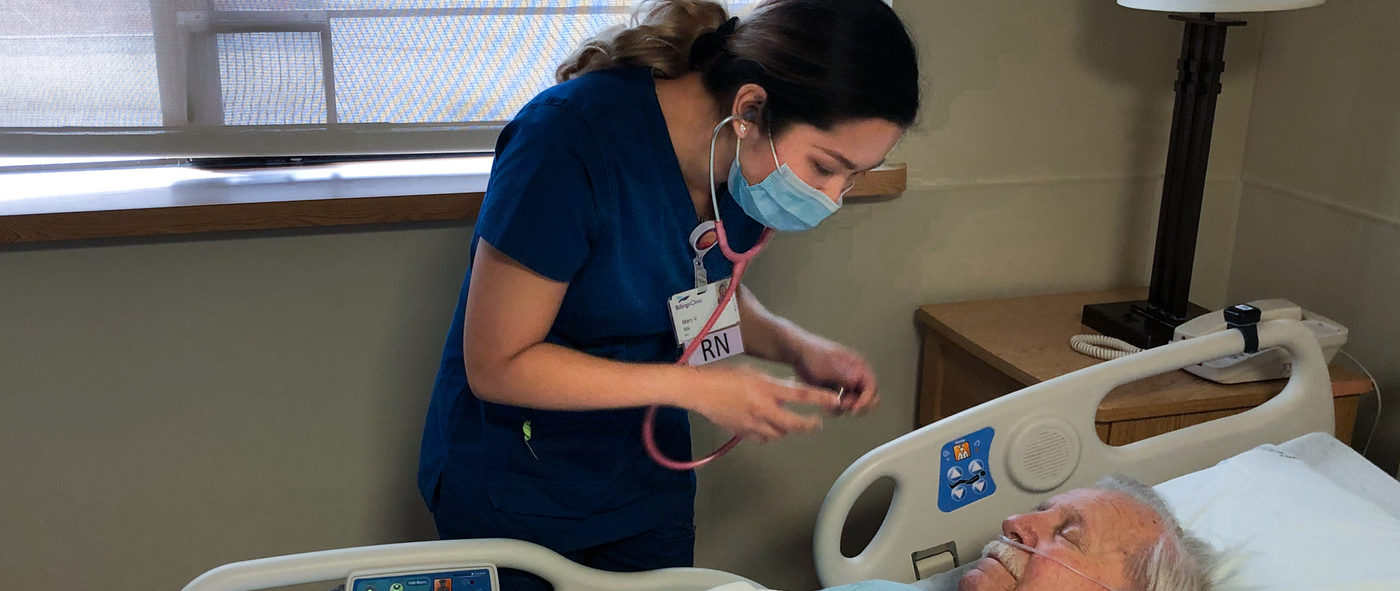Certification is a mark of skill and professionalism in any field. In nursing in particular, it has helped advance the industry by encouraging, recognizing, and rewarding individuals who actively pursue professional growth opportunities.
But nursing certifications do more than benefit the individual nurses who attain them — they can also improve the healthcare facilities in which these nurses work. The more skills and specialties a nurse has, the better equipped they are to provide their patients with higher quality care.
With the rise in popularity of nursing certifications, many facilities have come to recognize the benefits of hiring certified nurses. According to a survey from the American Hospital Association Certification Center, 86% of healthcare facilities say that certification is a contributing factor when seeking new hires.
In a time when nursing shortages show no sign of abating, it is more important than ever for healthcare organizations to retain confident and competent nurses who can meet and adapt to increasing demands for care. When facilities promote professional development and certification programs, they help their nurses prepare for this demand while simultaneously demonstrating their commitment to their employees’ career growth.

Why Should a Nurse Become Certified?
There are several reasons why nursing certification matters. At the most basic level, certification leads to better job prospects by enhancing professional credibility, validating specialized knowledge, and demonstrating a higher level of clinical competence, all of which can lead to higher salaries for nurses. Certification can also improve nurses’ confidence and expand their skill-sets, strengthening the connection between nursing specialty certification and better patient outcomes.
More specifically, nursing certifications:
Increase Recognition and Respect
Certification demonstrates that a nurse has proven their competence and distinguished themselves within their specialty — two qualities that are appreciated by everyone from supervisors and administrators to peers and patients. By continuing to invest in their education through recertification, nurses demonstrate their continued mastery of the latest developments and best practices within their specialty.
Enhance Professional Opportunities
In addition to providing nurses with a competitive edge during the hiring process, certification also tends to lead to more opportunities for upward mobility once they have been hired. More authority and responsibility often coincides with higher pay, further building the case that certification can lead to higher salaries for these professionals.
Boost Confidence
The more experience and education a nurse has, the better equipped they are to address complex, challenging situations when they arise. Through nursing certification, nurses can expand their knowledge base and gain the skills they need to confidently assist their patients.
What are the Benefits of Nursing Certification for Healthcare Institutions?
While there are many reasons why certification is important in healthcare, and for healthcare institutions in particular, one of the most important ones is that it helps institutions stand out from the competition. By hiring the most skilled, qualified nursing professionals available, healthcare institutions are demonstrating to patients that they are committed to providing high-quality care.
Nursing certification can also improve:
Accreditation and Funding
Many leading organizations, including The Joint Commission, a national authority on patient safety and care quality, look favorably on healthcare institutions that have a high percentage of certified nurses. This can lead to accreditation and grant funding, both of which can help attract new patients.
Employee Retention Rates
Nurses want to work for organizations that invest in their future. By providing their staff with opportunities to partake in certification programs, healthcare facilities demonstrate their commitment to career development, boosting employee engagement.
Patient Outcomes
It is not uncommon for healthcare providers to wonder how acquiring and maintaining certification improves patient care. According to one recent study, hospitals with a larger percentage of certified nurses with bachelor’s degrees had lower failure-to-rescue and 30-day mortality rates. This data is further supported by research indicating that certified nurses tend to make fewer medical errors, saving lives and healthcare dollars.














